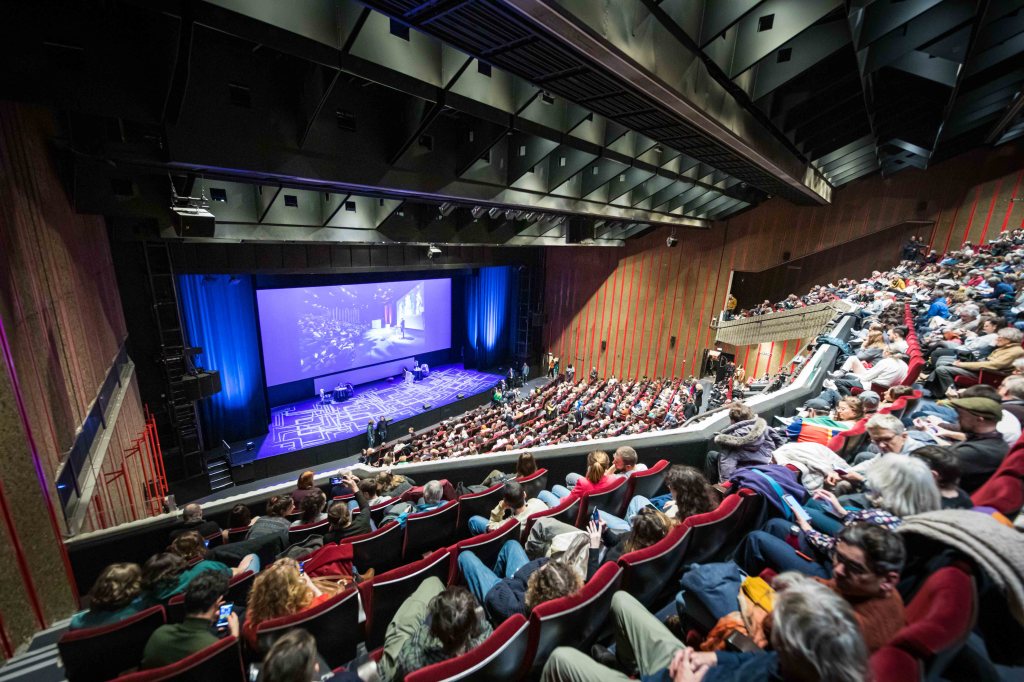
France’s Clermont-Ferrand International Short Film Festival, the world’s biggest festival devoted to short films, is protesting an unexpected funding cut, amid claims by politicians that the move is politically motivated.
The festival learned on Friday that Auvergne-Rhône-Alpes regional council had voted to cut its funding by half to $121,000 (€111,000 euros), during a meeting allotting the region’s cultural spending.
Unfolding at the end of January in the central French city of Clermont-Ferrand, the event has evolved into the biggest short film festival in the world since its creation in 1979.
Over the years it has shown the early works of a raft of now-established, award-winning filmmakers including Jane Campion, Nuri Bilge Ceylan, Mike Leigh, Abderrahmane Sissako, Olivier Assayas, Jessica Hausner, Vladimir Perisic, Keren Yadaya, Mati Diop, Léa Mysius and Ladj Ly.
The festival organizers say they are in shock and have put out a statement decrying the damage it could do and noting it did not make sense given the cultural and economic benefits the festival brings to the Auvergne region, which is one of the poorest in France.
“We do not understand this decision, the motivations remaining unclear and without being able to have a real dialogue with all of our referring regional elected officials,” read a statement put out under the name of festival President Éric Roux and the “Sauve qui peut le court métrage” team.
“This decision has an impact on an entire territory which benefits each year from more than 11 million euros ($12 million) in direct economic benefits thanks to the festival and its Short Film Market which attract thousands of professionals from all over the world.”
The regional council said the budget cut was part of a move to shift cultural spending away from towns and cities to rural communities.
The festival says this argument does not wash emphasizing the fact that its 160,000 spectators in 2023 were mainly local people and school students hailing from the city and the surrounding countryside.
The event also runs cultural outreach events in across the Auvergne region throughout the year.
It added that the funding cut could also have wider implications for the short filmmaking scene across Europe.
“This decision threatens the entire short film ecosystem and more broadly the young creators and voices that our festival and Short Film Market have been supporting for more than 45 years. It is a key event in the French, European and international film industry that is affected,” it said.
Communist regional counsellor Boris Bouchet accused the regional council president, the liberal-conservative politician Laurent Wauquiez, of using a “political guillotine”.
He recalled that the last edition of the festival in January hosted trade unionists who talked about their opposition to France’s controversial pension reforms as well as Wauquiez’s attitude towards the culture sector.
Wauquiez, a potential future presidential candidate, is known for his anti-welfare and anti-immigration policies and desire to cut back public spending in France.
“I fear that this decision is a retaliatory measure, as we saw recently in Lyon with the Nouvelle Generational Theatre. I have the impression that the region is applying a political guillotine towards cultural actors,” he said.
At the end of April, the Auvergne-Rhône-Alpes regional council announced it was cutting its $162,00 (149 000 euros) funding for Lyon’s Nouvelle Generation Theatre in response to a searing open letter from its director Joris Mathieu criticizing the body’s attitude and approach to the culture sector.
The Clermont-Ferrand team is looking at ways to absorb the funding cut by either reducing its programs, juries or duration.













